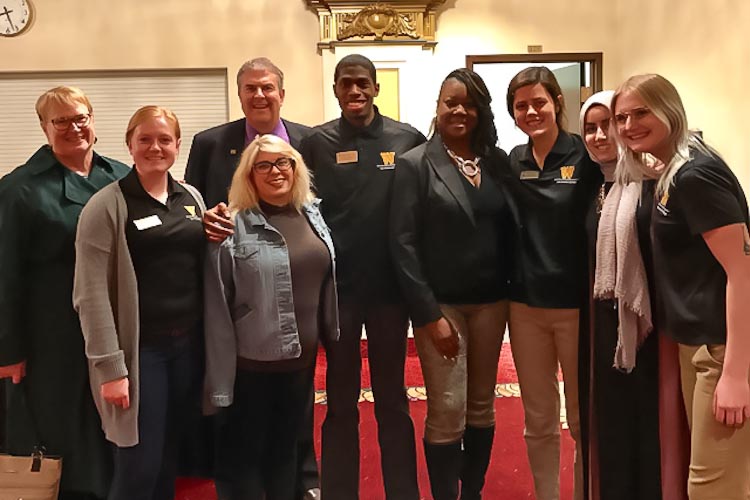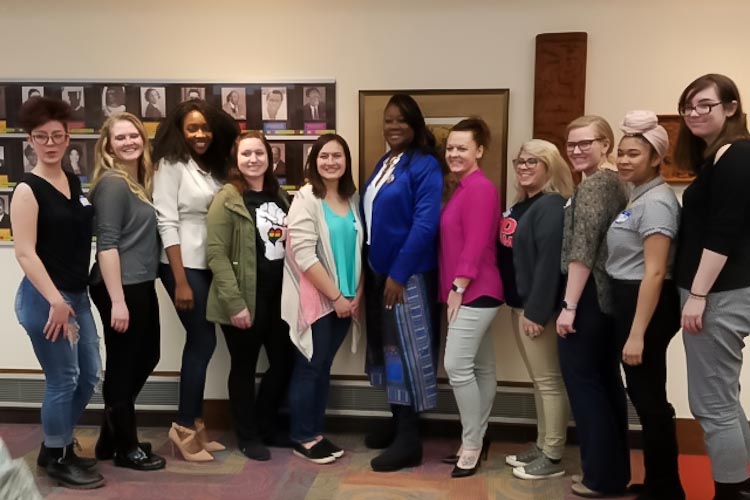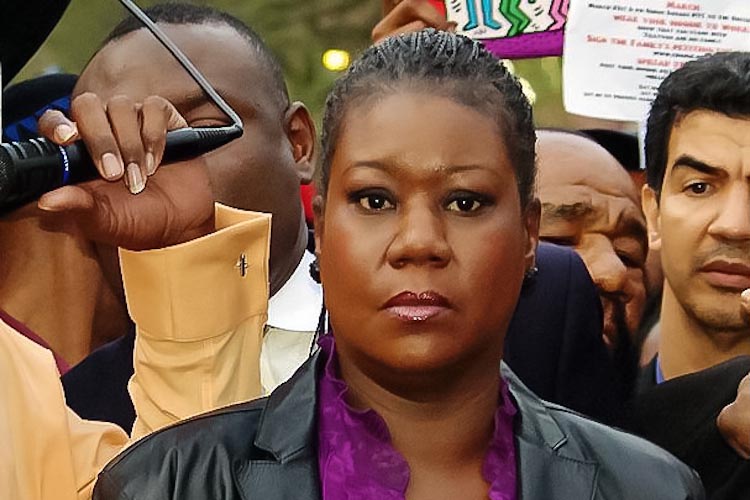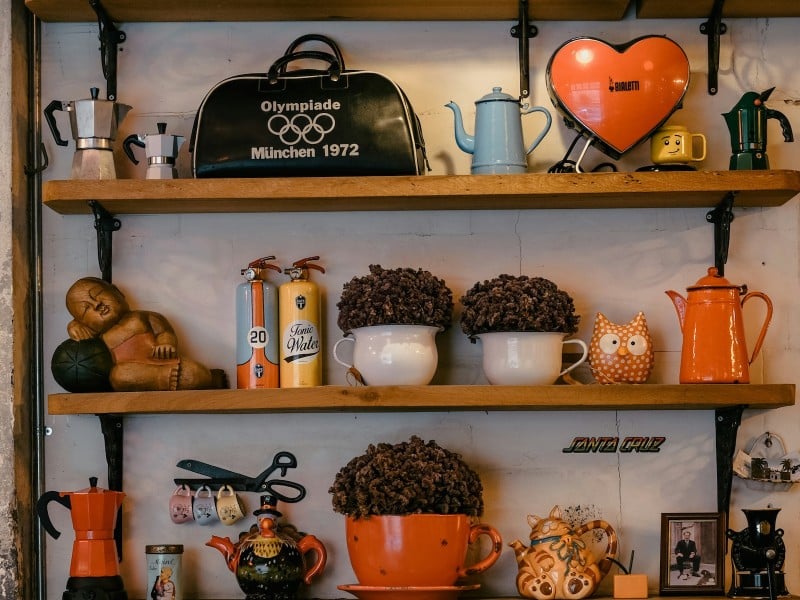From ‘average mom’ to activist: Sybrina Fulton talks about son, Trayvon Martin, racism, gun violence
Sybrina Fulton's son, Trayvon Martin, was shot down. Now she travels the country asking people to face up to racism.
It was five years ago that 17-year-old Trayvon Martin was shot down in the street, sparking the beginning of the national Black Lives Matter movement. But to his mother-turned-activist, Sybrina Fulton, that time feels like only moments ago. “It doesn’t feel like five years to my heart. I’m still healing, I’m just a human,” she says to a crowd at Chenery Auditorium last week. Sybrina Fulton was the keynote for the Lee Honors College Lyceum Lecture Series, which is centered this year around the theme, racial equity, and justice.
The event was comprised of a talk by Fulton, followed by an interview with WMUK’s Earlene McMichael, and a Q&A time with the audience. Fulton discussed the death of her son, her new book, Rest in Power, the possibility of running for public office, and most of all – the thread that tied it all together – calling people to action.
Let me tell you how average I am
“I am not your average speaker,” Fulton begins. “You have to know that I’m not polished, this is not something I went to school for… I’m just gonna be me, I’m just gonna be myself. Let me just tell you how average I am.”
No one here cares a lick about a pristine speech. After a standing ovation, the crowd of 800 sits, some leaning forward, on the literal edge of their seats. Fulton travels and speaks, she says, because she wants people to learn more about her family — her boys in particular. She has two sons, she says, “one in heaven and one here on earth.” Fulton wants to share her life story and use it as a catalyst for how we can all collectively make change.
Fulton says that before the death of her son, Trayvon, she was just “an average mom with average kids and an average lifestyle.” Prior to devoting her life full-time to activism and her foundation, Fulton worked for the Miami-Dade County Housing Development Agency, helping low-income families access affordable housing. Fulton majored in English and minored in communications in college — and as much as she says she’s not polished, her speaking style reaches the audience in a warm and compelling way.
The hoodie
On February 26, 2012, Fulton’s “average” lifestyle was interrupted when her son was shot down in the street. Trayvon’s death was blamed on his clothing choice — the gray hoodie that he wore. “When this happened, I listened to the media tell me about the hoodie — the cause of his death. As if an article of clothing could cause your death,” Fulton says.
The cover of Fulton’s book, Rest in Power, co-authored with Trayvon’s father, Tracy Martin, has the now infamous picture of Trayvon in a hoodie. The hoodie on the book cover is unique in color, though, and is meant to send a very intentional message.
The hoodie is red, white, and blue, because Fulton says, this conversation is happening all over America. “When this happened to us and our family, it happened to the country,” she says.
“I stand before you today – the reason Trayvon was shot was because of the color of his skin,” Fulton goes on. “I could take off a lot of things, but I can not remove the color of my skin.” Fulton goes on to list a host of other moms who know this truth too well, including Tamir Rice’s mom and Sandra Bland’s mom and Eric Garner’s mom.
Fulton has built relationships and become a system of support for other moms who have lost children to gun violence. She says those moms are her heart, “I’m a part of you and you’re a part of me.”
Circle of Mothers
Circle of Mothers is a project of the Trayvon Martin Foundation. Fulton says the idea for it came about from a dream she had. In her dream, she was in a room filled with mothers — they were all bonding and crying and healing and laughing. “It was so vivid, it was as if it was a reality,” she says. Fulton got up and started writing pages and pages of what she had seen in her dream.
Those ideas sprouted into a foundation that brings mothers to Miami for restoration, coping, and healing. “It’s about healing and bonding. It’s about empowering yourself because we try to take care of so many things — as mothers and women we don’t take care of ourselves,” Fulton says.
Afeni Shakur, the mother of Tupac Shakur, was the keynote at Fulton’s 2014 retreat. Shakur, during her speech, said that she had never been in a roomful of women who had been through the same thing. The following year, congressperson Maxine Waters joined them, and last year, it was Hillary Clinton who gave a talk at the retreat about gun violence prevention.
In fact, during the 2016 presidential campaign, some mothers from Circle of Mothers were active on the campaign trail. Some of them spoke at the Democratic National Convention in support of Hillary Clinton, and after the election, the mothers spoke at the Women’s March on Washington.
“That’s important not because I’m a woman, but because it’s the right thing to do,” Fulton says. “We gotta just talk to our guys — understand that if we’re doing the same work and then we’re coming home and taking care of the kids, you guys gotta give us more credit … and pay us!” she says to laughs and cheers.
Bringing the ugly and uncomfortable to the front
Fulton says that the most difficult thing for her to address with people is the hatred and division that is present in the United States. She says that only by bringing these ugly, uncomfortable issues to the forefront can we make a change.
Fulton says the worst day of her life was the day she buried her son. She recalls sitting at the front of the church, looking at a white casket, looking at her son, who she says, “looked like he was going to the prom.”
“We have laws in place that are not applied fairly to African Americans — stand your ground is one of them,” Fulton says, referring to the Florida law that protects shooters who kill in self-defense. That law was invoked in Trayvon Martin’s case, even though all they found on Trayvon at the time of his death was a candy and a drink.
“It took my son being shot down for me to stand up,” Fulton says. “It took that to make me even want to help people in the manner that I did. I wasn’t always a willing participant.”
Black Lives Matter and young people
Fulton says if it weren’t for the young people, who stepped out and loud following Trayvon’s death, she thinks he would have just been another statistic. “It’s an everyday occurrence,” she says. College and university students started posting pictures of themselves with hoodies on, calling attention to the shooting.
“The key to everything that is going to take place is our young people,” Fulton insists. She says that it’s, quite naturally, time to pass the torch. “I can say that I’m 50 years old and that I can honestly say that we haven’t done a good job with police brutality, with gun violence… we haven’t gotten this right,” she says.
Young people, she says, are the ones with the fresh, new ideas. And speaking directly to the young people in the audience, she says, “I want you to know that Trayvon was no different than who you are. He should have been given the same opportunities that you’re given. An education is so powerful — not just go to school, but graduate.”
Fulton wants young people to “do something with your fancy degree.” Be an activist, she says. Help people. And don’t be afraid. “You’re gonna make an impact because you have big dreams and big thoughts and you’re innovative and creative and I want you to use those thoughts. Just do it!”
Endless opportunities for adults
Not only has Fulton committed her full-time energy to her foundation, but she is also considering running for public office. She says she is doing research to see in what area she might be most effective. She says that might be local government. or state government. “I’m just trying to figure out which area, or position that I can make the most impact, difference, and changes to,” she says.
Speaking to the parents, Fulton says, “never give up!” She says that there were times that she wanted to give up, but she says that even when things look glum, there is still a chance. “Write a letter, mentor a young person. Just do something,” she says.
“So many people are being shot and killed and nobody is being held accountable for it. It’s wrong. It might not be somebody who looks like you, but it’s wrong.”
Do your part
Fulton ends the evening by telling the audience, “Do your part.”
“I have to let you know the ugly truth. They have to be embedded in your head. We’re talking about your country. We’re talking about you. What I’m doing now is I’m doing my part. I’m gonna ask you to do your part. We all make up the fabric of this country. We can’t sit back and say the government or community or this leader is gonna take care of it. We all have to take care of it.”
Kathi Valeii is a freelance writer, living in Kalamazoo. You can find her at her website, kathivaleii.com.


















